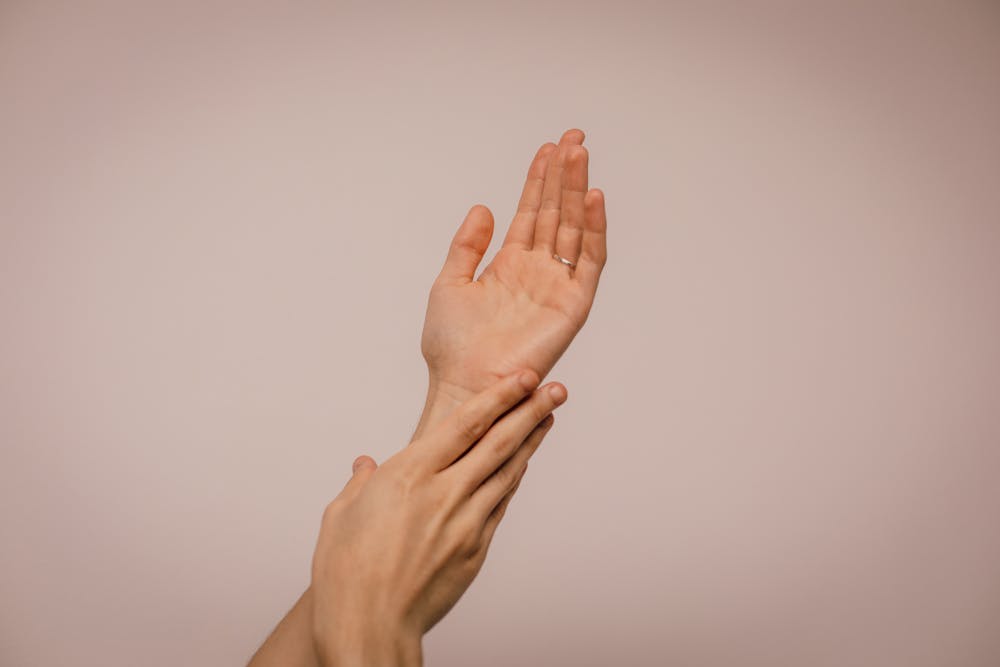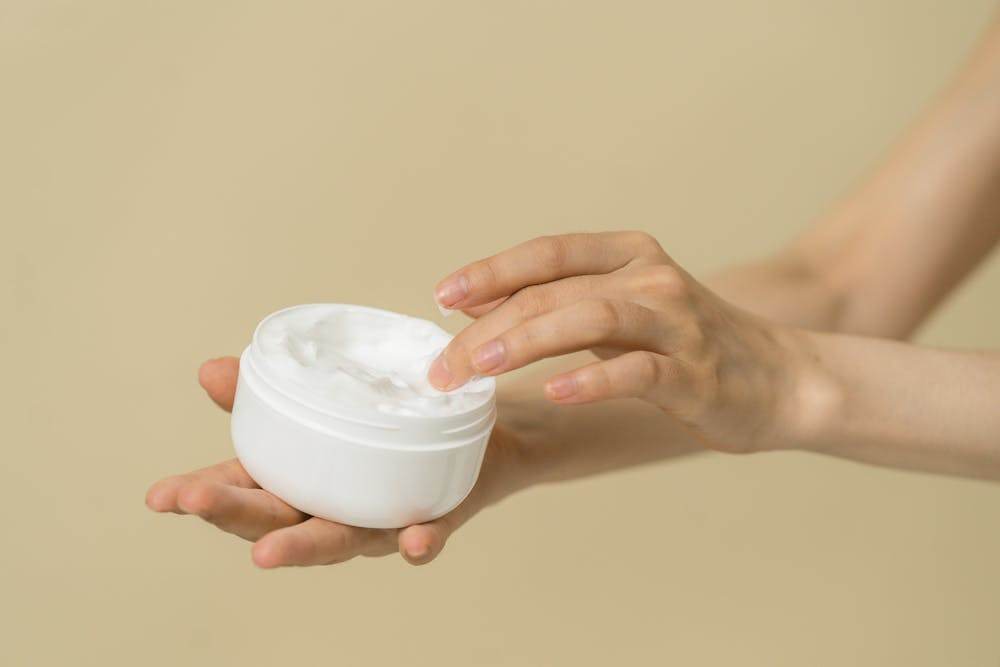You've probably invested in serums, moisturizers, and facial oils trying to achieve that elusive healthy glow. But what if the secret to radiant skin isn't in your bathroom cabinet, but in your hydration habits? Skin dehydration is one of the most overlooked causes of dullness, fine lines, and lackluster complexion, and electrolytes play a surprising role in fixing it from within.
Understanding Skin Dehydration vs. Dry Skin
First, let's clear up a common confusion. Dehydrated skin and dry skin aren't the same thing, though they often get lumped together.
Dry skin is a skin type characterized by low oil production. It's genetic and stays relatively consistent throughout your life. Dehydrated skin, on the other hand, is a condition caused by lack of water in the skin cells. Even oily skin types can experience dehydration.
The telltale signs of dehydrated skin include:
- Dullness and lack of radiance
- Increased appearance of fine lines and wrinkles
- Tight, uncomfortable feeling
- Darker under-eye circles
- Increased sensitivity and irritation
- Flaky patches despite using moisturizer
When your skin is dehydrated, it loses plumpness and elasticity. This makes every imperfection more visible and gives your complexion that tired, aged look that no amount of makeup can fully correct.
The Water-Skin Connection
Your skin is approximately 64% water, making it one of the most water-dependent organs in your body. Water serves multiple critical functions for skin health:
It maintains cell structure and plumpness. When cells are well-hydrated, they're full and firm, creating smooth, supple skin. Dehydrated cells collapse slightly, leading to wrinkles and sagging.
Water supports nutrient delivery and waste removal. Your blood carries nutrients to skin cells and removes metabolic waste. Without adequate hydration, this system becomes sluggish, leaving your skin starved and congested.
Proper hydration enables skin barrier function. Your outermost skin layer needs water to produce the lipids and proteins that form a protective barrier. When dehydrated, this barrier weakens, leading to increased sensitivity and moisture loss.
Why Water Alone Isn't Enough
Here's where most people go wrong: they drink more water expecting immediate skin improvement, but they don't see the results they hoped for. That's because drinking plain water only solves part of the equation.
Your body needs to actually absorb and retain that water for it to reach your skin cells. This is where electrolytes become essential. Electrolytes are minerals that carry electrical charges and regulate fluid balance throughout your body. The primary electrolytes include sodium, potassium, magnesium, and calcium.
When you drink water without adequate electrolytes, much of it passes through your system without being properly absorbed into cells. It's like trying to fill a bucket with holes, the water goes in but doesn't stay where you need it.
How Electrolytes Transform Hydration
Electrolytes work through a process called osmosis, which regulates how water moves in and out of cells. Here's how each major electrolyte contributes to skin hydration:
Sodium often gets a bad reputation, but it's crucial for maintaining fluid balance. Sodium helps your body retain the water you drink and directs it into cells rather than letting it flush through. The key is getting sodium from quality sources, unrefined sea salt contains trace minerals that support overall hydration.
Potassium works in tandem with sodium to regulate cellular fluid balance. While sodium primarily manages fluid outside cells, potassium manages fluid inside cells. This balance is crucial for maintaining cell plumpness and function. When potassium levels are optimal, your cells can hold onto hydration effectively.
Magnesium supports over 300 enzymatic reactions in your body, including those involved in maintaining skin barrier function and producing natural moisturizing factors. Magnesium deficiency is incredibly common and can manifest as dry, irritated skin that doesn't respond well to topical treatments.
Calcium contributes to skin barrier integrity and helps regulate cell turnover. Proper calcium levels support the production of ceramides and other lipids that keep your skin barrier strong and moisture-sealed.
The Gut-Skin-Hydration Axis
There's another layer to this story that most people miss: your gut health directly impacts how well you absorb and utilize both water and electrolytes. A compromised gut lining can't effectively absorb nutrients and minerals, meaning even if you're drinking electrolyte-rich fluids, your body may not be getting the full benefit.
Supporting gut health becomes essential for optimal hydration. When your digestive system functions properly, it efficiently absorbs the electrolytes and minerals your skin needs to maintain hydration from within.
Many people notice that addressing gut issues leads to dramatic improvements in skin hydration and appearance, because they're finally absorbing the nutrients they've been consuming. Signs your gut needs attention often include skin problems that don't respond to topical treatments.
Electrolytes and Skin Barrier Function
Your skin's outermost layer, the stratum corneum—functions as a brick-and-mortar structure. The "bricks" are dead skin cells, and the "mortar" is a mixture of lipids, ceramides, and natural moisturizing factors. This barrier prevents water loss and protects against environmental damage.
Electrolytes, particularly sodium and potassium, are crucial components of your skin's natural moisturizing factors. When electrolyte levels are balanced, your skin can produce adequate natural moisturizing factors to keep the barrier strong and hydrated.
Magnesium specifically supports the production of ceramides, essential lipids that cement the barrier together. Without sufficient magnesium, your barrier becomes porous, allowing moisture to escape regardless of how much you drink or what you apply topically.
Signs Your Skin Needs Electrolyte Support
Beyond general dehydration signs, specific indicators suggest electrolyte imbalance is affecting your skin:
You drink plenty of water but still have dry, dull skin. This suggests your body isn't retaining the water you're consuming, often due to inadequate electrolytes.
Your skin looks worse despite increased water intake. Excessive plain water without electrolytes can actually dilute your body's mineral stores, worsening dehydration at the cellular level.
You experience muscle cramps or fatigue alongside skin issues. These are classic signs of electrolyte imbalance that often manifest in your skin as well.
Your skin barrier seems constantly compromised, sensitive, reactive, and unable to hold moisture no matter what products you use.
Optimizing Electrolyte Intake for Skin Health
Getting adequate electrolytes doesn't require complicated protocols. Here's how to support your skin from within:
Choose Quality Electrolyte Sources: Not all electrolyte supplements are created equal. Many commercial sports drinks contain artificial sweeteners, synthetic colors, and minimal actual mineral content. Look for clean formulations with real minerals from unrefined sources.
Quality electrolyte blends like those from Purishh use unrefined salt and natural ingredients without artificial additives, providing the minerals your skin needs without the junk conventional options include.
Time Your Intake Strategically: While consistent hydration matters most, certain times benefit from focused electrolyte intake. First thing in the morning helps rehydrate after overnight fluid loss. During or after exercise replaces minerals lost through sweating. Throughout the day maintains steady cellular hydration.
Balance, Don't Overdo: More isn't always better with electrolytes. Excessive sodium without balancing potassium can cause issues. Too much of any single electrolyte can create imbalances. The goal is steady, balanced intake that supports natural fluid regulation.
Support With Whole Foods: While electrolyte supplements help, whole foods provide additional supporting nutrients. Leafy greens offer magnesium and potassium. Quality animal proteins provide minerals in bioavailable forms. Unprocessed foods generally provide better mineral absorption than isolated supplements alone.
The Topical-Internal Partnership
For optimal skin hydration, you need both internal and external support. Electrolytes provide the internal foundation, but topical ingredients help seal moisture in.
Quality skincare ingredients work synergistically with proper internal hydration. When your cells are well-hydrated from within, topical moisturizers work more effectively to prevent water loss and support barrier function.
Think of it this way: internal hydration plumps the cells, while external moisturizers seal that hydration in. You need both working together for truly glowing skin.
Beyond Hydration: Additional Skin Benefits
Proper electrolyte balance delivers benefits beyond basic hydration:
Reduced Inflammation: Balanced electrolytes support healthy inflammatory responses. Many skin concerns, from acne to premature aging, involve chronic inflammation that proper mineral balance helps modulate.
Enhanced Nutrient Delivery: When fluid balance is optimal, your blood efficiently delivers nutrients to skin cells. This means the healthy foods you eat and supplements you take actually reach your skin where they can work.
Better Cellular Function: Every cellular process requires adequate hydration and mineral balance. When these are optimized, your skin cells function at their best, producing collagen, turning over regularly, and maintaining healthy barrier function.
Improved Detoxification: Proper hydration and electrolyte balance support lymphatic drainage and waste removal. This reduces puffiness, dark circles, and the congested appearance that comes from sluggish detoxification.
Realistic Expectations and Timeline
While electrolyte optimization can dramatically improve skin hydration, changes don't happen overnight. Here's a realistic timeline:
Within Days: You'll likely notice improved energy and less frequent thirst. Your skin may feel slightly more comfortable.
Within 1-2 Weeks: Skin texture often improves noticeably. That tight, uncomfortable feeling diminishes. Fine lines caused by dehydration may appear less prominent.
Within 4-6 Weeks: With consistent optimal hydration, your skin's natural glow returns. Radiance improves as cells maintain proper hydration. Your skin barrier strengthens, leading to less sensitivity and better resilience.
Long-Term: Sustained proper hydration supports all aspects of skin health. Maintained cellular plumpness helps prevent premature wrinkle formation. Strong barrier function protects against environmental damage. Overall skin resilience and appearance continue improving.
Making It Part of Your Routine
Incorporating electrolytes into your daily routine is simpler than you might think:
Start your day with electrolytes mixed into water before your coffee or tea. This jumpstarts hydration after overnight fluid loss.
Keep a quality electrolyte blend accessible throughout the day for easy hydration maintenance. Many people keep a container at their desk or in their bag.
Pay attention to your body's signals. Increased thirst, dry lips, or decreased energy often indicate you need more hydration support.
Adjust based on activity level and climate. Hot weather, intense exercise, and dry indoor environments all increase electrolyte needs.
The Foundation of Glowing Skin
Achieving genuinely radiant skin requires more than topical products alone. Your skin reflects your internal health, and hydration forms the foundation of that health. Electrolytes are the key to making hydration actually reach and benefit your skin cells.
By optimizing your electrolyte intake through quality sources, you're not just supporting skin appearance, you're enhancing cellular function throughout your body. The skin glow is simply the visible evidence of better internal health.
For those seeking natural wellness solutions that work from the inside out, understanding and optimizing electrolyte balance represents one of the most effective and accessible steps you can take. Your skin, and entire body, will thank you for it.




